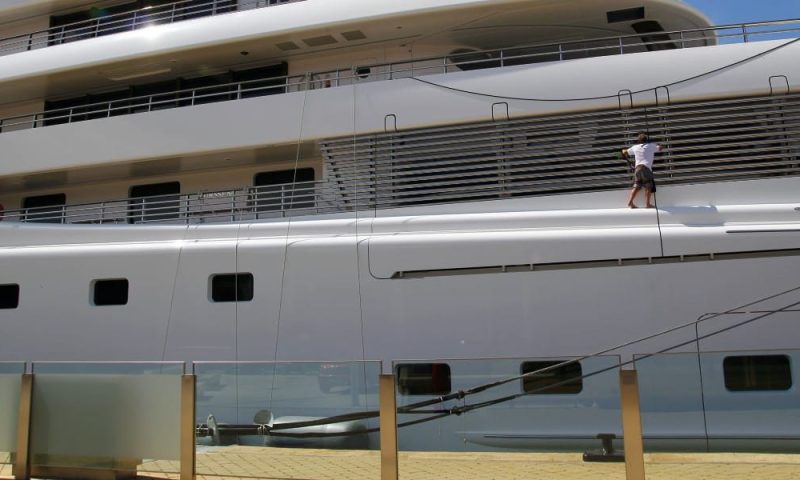When you think of dangerous jobs at sea, does Deadliest Catch come to mind? Definitely! Besides a terrific watch, the show underscores the danger that commercial crabbers and fishermen face every day. But they’re not the only ones in jeopardy: working around or aboard any vessel — whether a cargo ship, tanker, yacht, ferry, or cruise ship — presents risks.
What happens when you’re injured while at work in your capacity as a crew member or seaman? Is there maritime workers’ compensation? Can you receive benefits with help from a Jones Act lawyer? When your health, safety, and livelihood are on the line, you need answers.
Seaman or Maritime Worker?
Are you classified as a seaman or a maritime worker? The differences are significant in terms of the steps you can take if you are injured at work.
A seaman spends 30 percent or more of their time working aboard a vessel that is “in navigation.” That is, the boat or ship travels on navigable waters or is capable of doing so. It must be afloat (i.e. not dry-docked or out of the water on blocks) and operational.
To be considered a seaman, your job must contribute to the “working function” and/or goals of the vessel. This is a very broad definition; virtually every job on a vessel contributes to the overall goals, from the captain to the custodians.
Now, all seaman are maritime workers, but not all maritime workers are a seaman. Maritime workers do not spend 30 percent or more of their working time aboard vessels in navigation. Some don’t even work aboard vessels. So, if you are a dock worker, longshoreman, cargo handler, crane operator, harbor worker, etc., you are a maritime worker.
These classifications matter because there are different programs under which injured seaman and maritime workers can apply for benefits.
The Jones Act
Seamen cannot file workers’ comp claims. They do, however, have recourse under the Jones Act and other maritime laws.
The federal Jones Act regulates maritime commerce in the United States. The law also protects seamen who are injured on the job. There is a significant difference between it and workers’ comp: with these state-mandated programs, employees can receive benefits regardless of fault. That is, if they themselves caused the accident which resulted in injury, they can still get paid.
Under the Jones Act, seamen can only receive compensation if their injuries are the result of negligence. Employers must provide their workers with a “reasonably” safe workplace and use “ordinary care” to maintain and keep the vessel.
The good news for maritime workers is that employers are held to a strict standard; any negligence on their part, however minor, can result in a claim. Seamen only need to prove that employer negligence was involved in their injury – even if only tangentially. Medical expenses are covered, as are lost wages.
An experienced Jones Act lawyer can help you build the compelling case you need to ensure you receive the compensation you are owed.
Injured seamen can also find relief through general maritime laws: for example, if a ship is “unseaworthy” – that is, it does not provide a safe place to work – then the owner of the vessel is responsible for any injury.
Another law provides for the “maintenance and cure” of injured seamen. Regardless of fault, employers must provide room and board for the individual while they are recovering: this can include mortgage/rent, utilities, homeowner’s insurance, food, and property taxes. Cure refers to medical expenses.
The Longshore and Harbor Workers’ Compensation Act
General maritime workers are not covered by the Jones Act, but they are protected under the LHWCA. Think of it as maritime workers’ compensation; it is very similar to state workers’ comp laws. One difference – a favorable one for maritime workers – is that LHWCA typically provides more generous benefits.
If You Are Injured on the Job
While the compensation laws for injured employees differ between land and sea, there are a few commonalities. If you are injured on the job, report it immediately to your employer (or the captain/supervisor). While you have seven days to do so, it helps your case if you do as soon as possible.
Your employer is required to provide medical treatment. If you are at sea and your condition is serious, your employer must medevac you via helicopter (if you are in range or when you become in range of the US Coast Guard) and/or communicate via phone/radio with a physician. If you are outside of the US, your employer must ensure you are treated and then transport you back to the States.
Keep any and all documentation. If your employer and/or their insurer are not holding up their end of the bargain – i.e. not providing prompt and appropriate medical treatment, not paying maintenance and cure – then contact a maritime workers’ compensation or Jones Act lawyer.
Maritime jobs are inherently risky; but when you are owed compensation for a work-related injury, the LaBovick Law Group will fight aggressively to ensure you receive it.
